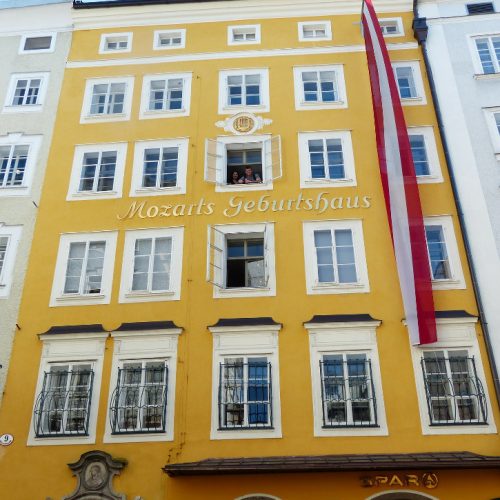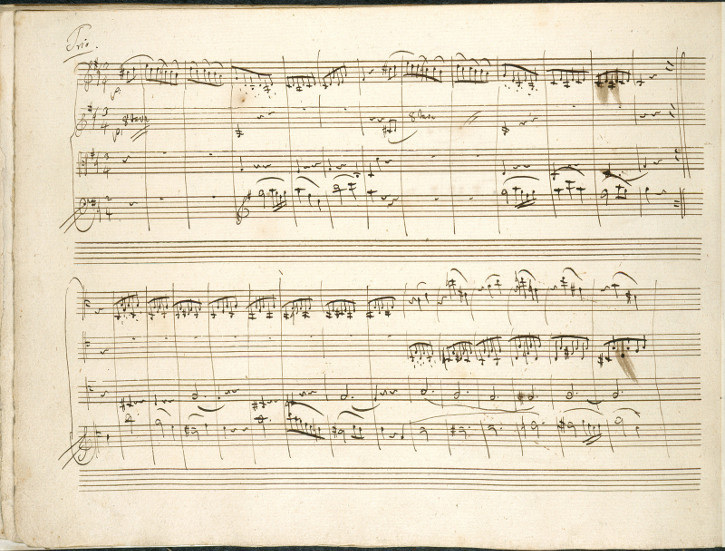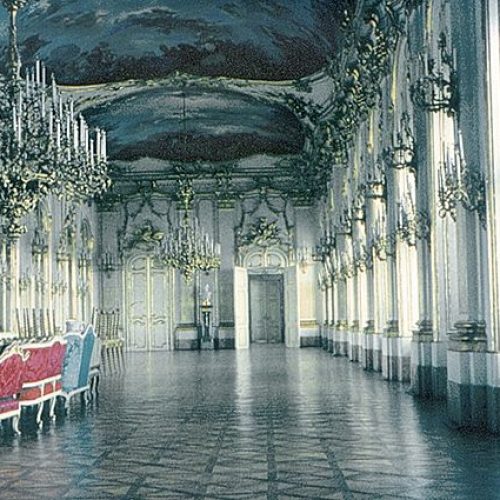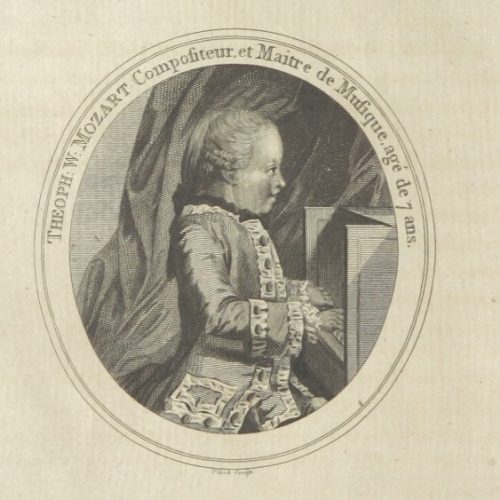A child prodigy and his strange life story
Wolfgang Amadeus Mozart, a celebrated composer and child prodigy, is still present on the Viennese classical music scene today. This biography promises to tell his “strange life story”, beginning with anecdotes from his childhood in Salzburg.
Contents
Leopold Mozart: From Augsburg Talent to Mentor of the Child Prodigy Wolfgang Amadeus Mozart

Early compositions and the road to fame
This story illustrates Mozart’s early musical talent and marks the beginning of his impressive career. Even at a young age, he showed an extraordinary talent for composing, which his parents wanted to encourage.
In order to showcase his talent and that of his sister Nannerl to the world, they undertook their first successful trip to Munich in 1762. Further trips through Austria followed, during which the siblings performed for numerous aristocrats. These performances were strategically planned in order to ultimately receive an invitation to the prestigious Viennese court

Mozart's triumph at the Viennese court: from piano virtuoso to unexpected violin talent
The Mozart family’s journey to the Viennese court lasted three weeks. Once there, the young Wolfgang Amadeus Mozart wowed Emperor Franz I Stephan, Empress Maria Theresa and their children with his piano playing in the Hall of Mirrors at Schönbrunn Palace. According to an anecdote, Mozart asked the court composer Wagenseil to help him turn over the sheet music while he played one of Wagenseil’s pieces. With his self-confidence and talent, Mozart took the heart of the court by storm.
Although Mozart mainly played the piano, he brought a violin with him from Vienna, which had been given to him as a gift. When a violinist friend asked Leopold Mozart for his opinion on some violin trios, Wolfgang insisted on playing the second violin, even though he had never had any lessons. To everyone’s surprise, he played the second violin flawlessly in all six trios. This incident demonstrated Mozart’s extraordinary musical talent and led to him also receiving violin lessons. Despite his self-confidence and strength of will, Mozart was an obedient child.

Mozart's European tour: triumphs, inspirations and musical growth
In London, Mozart played for the English royal family and met Johann Christian Bach, whose musical style he admired and often imitated. During his stay in England, Mozart discovered Italian opera and symphonies and wrote six sonatas, which he dedicated to the Queen. The family returned to Salzburg after three and a half years and around 40 compositions, including Mozart’s first symphony, despite health challenges during the trip.

Leopold Mozart: From Augsburg Talent to Patron of the Prodigy Wolfgang Amadeus Mozart
After his first European tour, Mozart returned to Austria in 1767 and was commissioned by the Emperor to compose his first opera. He then traveled to Italy with his father to establish himself as a musician. He received his first opera contract in Milan and was taught counterpoint by Father Martini in Bologna. Their journey continued to Rome, where Mozart was knighted and wrote down the score of the Miserere after hearing it only once. After 15 months in Italy, they returned to Salzburg following the successful premiere of Mozart’s opera “Mitridate Re di Ponto” in Milan.
Mozart: child prodigy and musical genius - the early years
Viennese classical music at its best
